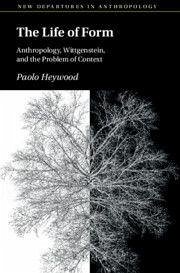What if anthropology's fundamental assumptions about cultural and social context were shaped by a philosopher many anthropologists have never engaged with? This book explores how, from the early twentieth century to the present day, anthropological ideas about context have been shaped by Ludwig Wittgenstein's evolving philosophy, often without anthropologists fully realizing it. It shows how Wittgenstein's philosophical journey mirrors anthropology's own theoretical transformations. Through careful analysis of key figures from Malinowski and Radcliffe-Brown to Geertz and contemporary theorists, Paolo Heywood reveals unexpected connections between philosophical developments and anthropological practice. The result is a surprising genealogy of how we came to think about culture, society, and everyday life the way we do. This intellectual history illuminates the hidden philosophical assumptions that continue to shape anthropological work today. It reveals how disciplines are shaped by ideas they've forgotten they borrowed, and the surprising ways such ideas evolve in new contexts.
Bitte wählen Sie Ihr Anliegen aus.
Rechnungen
Retourenschein anfordern
Bestellstatus
Storno





![Short Sunday Service for Travelling Parties [microform]: Being a Simple Devotional Form of Prayer and Praise for the Use of Christians on the Lord's D Short Sunday Service for Travelling Parties [microform]: Being a Simple Devotional Form of Prayer and Praise for the Use of Christians on the Lord's D](https://bilder.buecher.de/produkte/66/66145/66145903m.jpg)


